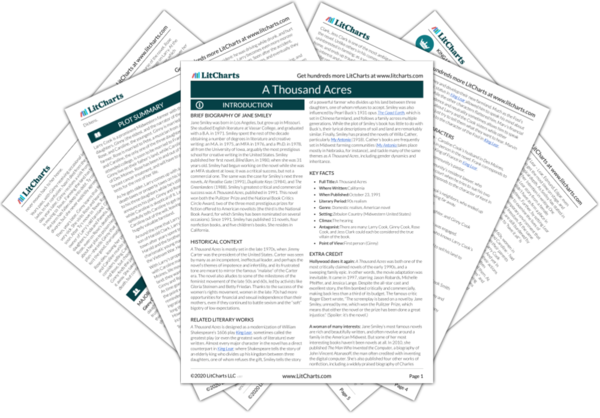This passage is important for a number of reasons. First, we learn the narrator’s name for the first time: Ginny. (Note that her name starts with a “G,” like her corresponding character Goneril in
King Lear, and following the pattern of the rest of the characters: Larry as Lear, Rose as Regan, and Caroline as Cordelia.) Second, the passage shows the first interaction, or rather, non-interaction between Ginny and Caroline. Caroline, the youngest daughter of the family, is also the most independent of the three daughters: she doesn’t live at home anymore, and seems disconnected from her sisters. Third, the passage emphasizes the static nature of life on the farm.
